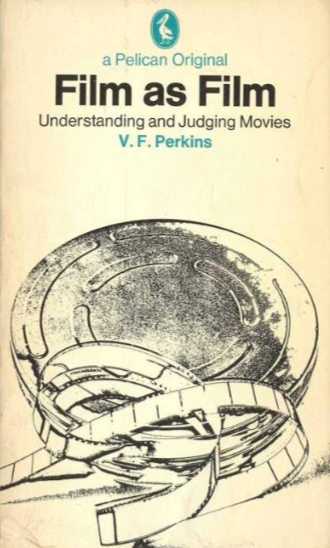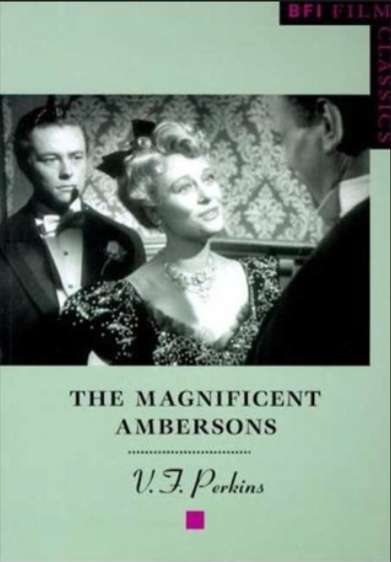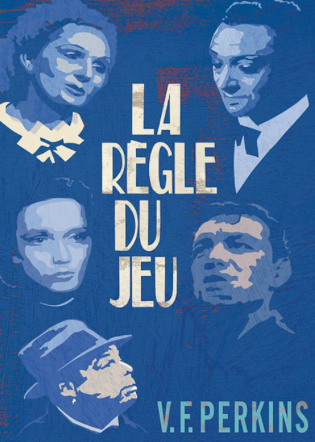Alan Lovell
I first met Victor in the late 1950s when we were students at Oxford University. We were both members of a small group of film enthusiasts. The group arranged film viewings, organised discussions and invited filmmakers to talk about their work - activities that are commonplace now but certainly weren’t then. I didn’t know Victor well. We had our own circle of friends whose interest in the cinema came from different starting points. It’s significant that Movie emerged out of his circle, Universities & Left Review from mine.
I got to know him much better when he joined the British Film Institute’s Education Department in the mid-1960s. It was a tribute to Victor’s qualities that he got a post in the Department. He had a number of things working against him. When we advertised a post, we were surprised to receive his application because, while the Education Department wasn’t overtly hostile to Movie, it wasn’t particularly sympathetic either. And because it published Sight & Sound, the Institute wasn’t one of Movie’s favourites. To make matters worse for him, it wasn’t exactly an open competition for the job as we had a heavily favoured candidate in mind, Peter Wollen.
We did appoint Peter but we were so impressed by Victor that we decided we must find a way for him to join us. Since the Labour government of that period funded the Arts relatively generously, we were able to create another post and appoint Victor. He proved our assessment of his qualities to be more than accurate as he made valuable contributions to the Department’s work developing film education.
We were sad when he left us but pleased that he went to work at Bulmershe College of Education because it had been one of the pioneers of film education. In retrospect, I think it was a loss that Victor wasn’t around when the mix of semiology, psychoanalysis, Marxism and feminism had such an impact on the Education Department. The way he engaged with cinema and the clarity of his intelligence would have been enormously helpful in the development of those ideas. Unfortunately, an intemperate editorial in Screen a few years later attacked Victor and Movie and prevented the development of a dialogue that could have been productive for both sides.
From that period, I have three vivid but very different memories of Victor. The first is an odd one. When Victor worked at the Institute, he invariably disappeared at lunchtime, never giving any indication of where he was going. We wondered what he got up to: an assignation perhaps, or maybe meetings with Movie colleagues. An accidental sighting revealed a more surprising purpose. He spent his lunchtimes playing on the pinball machines in the amusement arcades that were a feature of Soho. I couldn’t then, and can’t now, fit together my sense of Victor’s personality with this passion.
My second memory is more predictable, made more poignant by Victor’s death. The reception for Victor and Tessa’s wedding was held at Tessa’s parents’ house, which was a rather splendid one with a garden that ran down to the Regent’s canal. On a beautiful summer day, it really felt that ‘the future lay ahead’ for both Victor and Tessa - and for many other people there.
(I imagine Victor found his father in law, the poet, John Pudney, particularly congenial. Pudney’s poem, For Johnny, very popular during the Second World War, was used very effectively in the film, The Way to the Stars. Pudney also stood as a Labour candidate in the 1945 election, an act that was repeated rather more successfully by Victor’s son, Toby, many years later).
My third memory is a professional one. In the late 1960s, the National Film Theatre organised a season of films directed by Nicholas Ray. Ray was present at the showing of most of these films, introducing them and responding to questions from the audience. He was a terrific presence, illuminating, funny, and fully engaging with the audience. Occasionally, he was asked questions about his films whose answers depended on details he’d forgotten. Whenever he couldn’t answer a question, he would yell out ‘Victor’ and Victor would emerge from the audience to provide the relevant information.
After the 1960s, our careers went in different directions but as we both moved to the Coventry/Leamington area we didn’t lose touch. Victor came to Warwick with a brief to develop film study. From its earliest years, film had a presence at the university but it remained a marginal interest, regarded with suspicion by senior academics. In this context, I very much admired the way Victor built on the work of pioneers like Cyril Barrett and Robin Wood to create a fully-fledged department with a national reputation. A number of people helped to establish that reputation but, for me, it was Victor’s commitment to the close, detailed analysis of films that gave Warwick its distinctive character, particularly through the way it shaped the undergraduate curriculum.
I have many good memories of interactions with Victor in the following years, some professional, some personal. One is particularly strong because it is of an event that turned out to be the ‘Late Autumn’ of our relationship. Six years ago, Victor invited me to a film club he’d set up at the university. I went to the early showings thinking I might be an occasional attender but I soon became a consistent one. There were two reasons for this. The first was the wide variety of films Victor chose, many of which were outside the boundaries of my taste. I was often surprised by his choices only to be impressed by his ability to demonstrate convincingly why he’d made them. My three years’ attendance at the film club turned out to be an education that certainly extended my taste.
The second reason was the opportunity the club provided for discussions with Victor. Not many people came to see the films and, on occasion, only Victor and I were present. This created space and time for our exchanges. Even though we differed in our approaches to film, I always enjoyed our exchanges and came away stimulated and challenged by them. The wheel had come full circle. I first met him at a film club and most of my last memories of him are set in another film club.
Victor had many qualities that were obvious to anybody who knew him: his acute intelligence, his seriousness of purpose, his wide ranging knowledge of films. Those qualities were so powerful that he could seem to bean intimidating figure. But another less obvious quality undermined this impression. I only became fully aware of it when I visited him after his heart attack in Germany. We talked about the childhood experiences that had most shaped our futures. Victor said it was 'performance'. When he recited a poem, sang a song, or played a part in a play, adults always encouraged him with their praise. The praise had a powerful effect on him, I think. At some level of his personality, Victor was a player, a comedian. Critic, theorist, teacher and performer - I will remember him for all of his talents.




